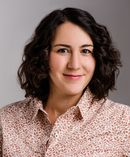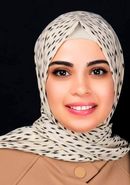Doctoral Researchers 2022
ALL doctoral candidates researching at the Helmholtz Diabetes Center shall be associated members of the International Helmholtz Research School for Diabetes, benefiting from the comprehensive scientific, translational and professional training program for future leaders in diabetes research. The doctoral researchers who started in 2022 and are funded by HRD are:
Ankush (DAAD funded)

Ankush Jha
Institute for Diabetes and Cancer (IDC)
Helmholtz Center Munich
"I am Ankush Jha, a pharmacology graduate and I come from a nation that values diversity while embracing unity (India). I pursued B. Pharm (Pharmaceutical science) & M.S. Pharm (Pharmacology & Toxicology). I did my research thesis on evaluating the effect of Nootkatone against Doxorubicin induced Cardiomyopathy. Thereafter, I continued to gain the research experience as a research fellow at BITS Pilani, where I worked on a peptide and its effect on mas and pgc-A receptor in hypertension. Following my scientific interest, I always wanted to do PhD in medical science. Fortunately, I got an offer from Helmholtz Munich to work in the field of Diabetes. Although a new experience, I always had faith on my capabilities to solve new challenges of medical science.
For my PhD, currently I work on “mitochondrial translation and its role in gender dimorphic response to cold exposure”. My role is to find the effect of mitochondria in brown adipose tissue (BAT) in both male and female mice (In-Vivo & In-Vitro). Several studies have claimed that female has more BAT which in turn have more mitochondria as compared to men. Hence, obese females show healthier phenotype despite being overweight as compared to obese men, which show greater risk for dying through obesity-related comorbidities. In addition, we want to establish the polysome profile which will be helpful to identify the novel peptides from small, medium and large ORFs. Also, there is no available female cell line on different fat depots, and we want to develop it in our lab, which we can contribute to scientific community."
Mireia

Mireia Molina van den Bosch
Institute of Diabetes- and Regeneration Research (IDR)
Helmholtz Center Munich
"I have always had an intrinsic curiosity, especially in all disciplines related to natural sciences and technology. For this reason, I decided to study Biotechnology at the University of Barcelona (UB). But after graduating, I was eager to learn much more.
Paving the path toward a scientific career in research, I enrolled in a master’s degree in Translational Biomedical Research at the Vall d’Hebron Research Institute (VHIR) & UAB.
During my studies, I had the opportunity to join the Nephrology group at VHIR, where I gained my first insights into the complex but fascinating field of diabetes. We investigated a microvascular complication of diabetes affecting the kidney, commonly known as diabetic nephropathy, and studied whether the combination of specific pharmacological approaches could mitigate disease progression and have a nephroprotective effect. Working on this project made me aware of the increasing prevalence of diabetes and its impact on our society. The urgent need for interventional solutions encouraged me to pursue this line of investigation.
My passion for translational research focused on diabetes and my strong motivation to live abroad prompted me to start a PhD at the Helmholtz Diabetes Center in Munich. My PhD project aims to decipher the mechanisms underlying b-cell development in health and diabetes using a pig model system. Our ultimate goal is to find new therapeutical solutions with clinical translational value."
Patricia

Patricia Velado
Institute of Translational Stem Cell Research (ITS)
Helmholtz Center Munich
"My name is Patricia, originally from Spain and in 2015 I completed the Erasmus Mundus Master's program in Evolutionary Biology after studying at Uppsala University (Sweden) and Ludwig Maximilian University of Munich (Germany).
In the following years, I have worked as a research assistant in three different groups, most recently in the Type 1 Diabetes (T1D) Pathology group, where I developed a deep interest in understanding the mechanisms and causes underlying T1D.
My PhD project focuses on the intricate world of beta cells and the complex interplay of proteins, hormones, and enzymes within insulin granules in type 1 diabetes. By using state-of-the-art microscopy and advanced image analysis, I will explore the expression, localization, and processing of key granule proteins like IAPP, chromogranins, and secretogranins. Understanding how these important proteins interact with each other and with insulin, how they change under conditions of high cellular stress, and which role they might play during the development of type 1 diabetes, is critical to open new opportunities for therapeutic intervention."
Shefa (DAAD funded)

Shefa 'Aljabali
Institute of Experimental Genetics (IEG)
Helmholtz Center Munich
"I obtained a Bachelor's degree in Biomedical Sciences (Honours) from Jordan University of Science and Technology (JUST), the second-highest ranked university in Jordan. Being among the top 3% of graduate students, I was awarded a fully funded scholarship to pursue the only Master's program in Clinical Biochemistry offered in the country at JUST. My Master's thesis was about discovering the effect of seminal plasma pyridoxine on male infertility. In parallel with my master’s, I did a research internship in Prof. Dr. Edda Tobiasch’s lab at Hochschule Bonn-Rhein-Sieg, Germany. During this internship, I had the opportunity to work in the field of regenerative medicine to investigate the impact of MSCs differentiating towards adipocytes on endothelial gene expression.
As I delved deeper into the realms of science and research, my passion for being a researcher grew stronger. As a result, I set out to pursue a PhD in the Biomedical Sciences field and thankfully, I managed to join Dr. Raffaele Teperino's group at the Institute of Experimental Genetics (IEG).
My PhD project aims to track male-tract circulating RNAs to understand their role in paternal epigenetic inheritance. Dr. Teperino’s group has recently developed a novel method to label RNA transcripts in vivo. I will be using this method to target circulating RNA in spermatogenic and epididymal epithelial cells to unveil their function and track them from their transcriptional source to the functional sink. Also, I will examine how environmental factors like obesity have an impact on the small RNA pool in male gametes and discover whether they have any influence on future generations. My future plan is to work in academia and establish a research lab to lead my own research ideas and projects."
Till

Till Johannsmann
Institute of Diabetes Research (IDF)
Helmholtz Center Munich
"I own a master’s degree (M.Sc.) in Biochemistry from the University of Bielefeld. Within my bachelor’s thesis, I focused on Protein Biochemistry by studying protein interactions. Then, in my master’s program, I specialized in Cellular Biochemistry and Immunology due to discovering a particular interest in translational research.
During a research internship and my master’s thesis, I gained my first insights into Type 1 Diabetes (T1D) research which deepened my interest in starting a Ph.D. in the field of T1D immunology.
Autoimmune T1D involves an imbalance in immune tolerance versus immune activation. The impaired immune tolerance apparent with aberrant immune activation finally leads to the destruction of insulin-producing beta cells. Therefore, targeting regulatory T cells (Tregs) as cellular mediators of immune tolerance is one possible way to fight this overshooting immune activation in T1D. Novel compounds that foster Tregs present a promising concept for interfering with the impaired Treg induction in autoimmunity and T1D.
Within my Ph.D. project, I will validate drug candidates identified by a high-throughput screen regarding their effect on Treg induction, function, and stability. This work could contribute to future immunotherapeutics for the prevention and treatment of T1D and other autoimmune diseases."
Violet

Qiuyu Sun
Pediatrics Department
Alberta Diabetes Institute
"I graduated from the Unversity of Alberta in 2021, where I obtained my bachelor’s degree in Pharmacology. During my undergrad, I volunteered as a summer student in several different laboratories, including that of Dr. Gary Lopaschuk. From that experience, I found myself really interested in cardiac energy metabolism. Therefore, I decided to pursue further study by committing to graduate school at Dr. Gary Lopaschuk’s laboratory.
My project aims to determine the metabolic profile of the heart in hear failure with preserved ejection fraction (HFpEF). HFpEF is a debilitating disease that is very prevalent in patients with type 2 diabetes (T2D) and obesity. Despite continued efforts, few reliable therapies have proven to be effective in treating HFpEF. While it is well-accepted that heart failure involves changes in myocardial energetics, it remains unclear whether alterations in cardiac energetics contribute to HFpEF severity. Therefore, the objectives of my study were to define the cardiac energy metabolic profile in HFpEF and then attempt to lessen the severity of HFpEF by improving cardiac energetics.
I am really honored to be part of the team of HDR, and I look forward to the collaboration with Dr. Timo Müller and his lab. I hope that through this collaboration, we can further our understanding regarding the dysregulated glucose metabolism and cardiac insulin resistance of the heart in HFpEF and identify potential therapeutic targets for treating HFpEF."
